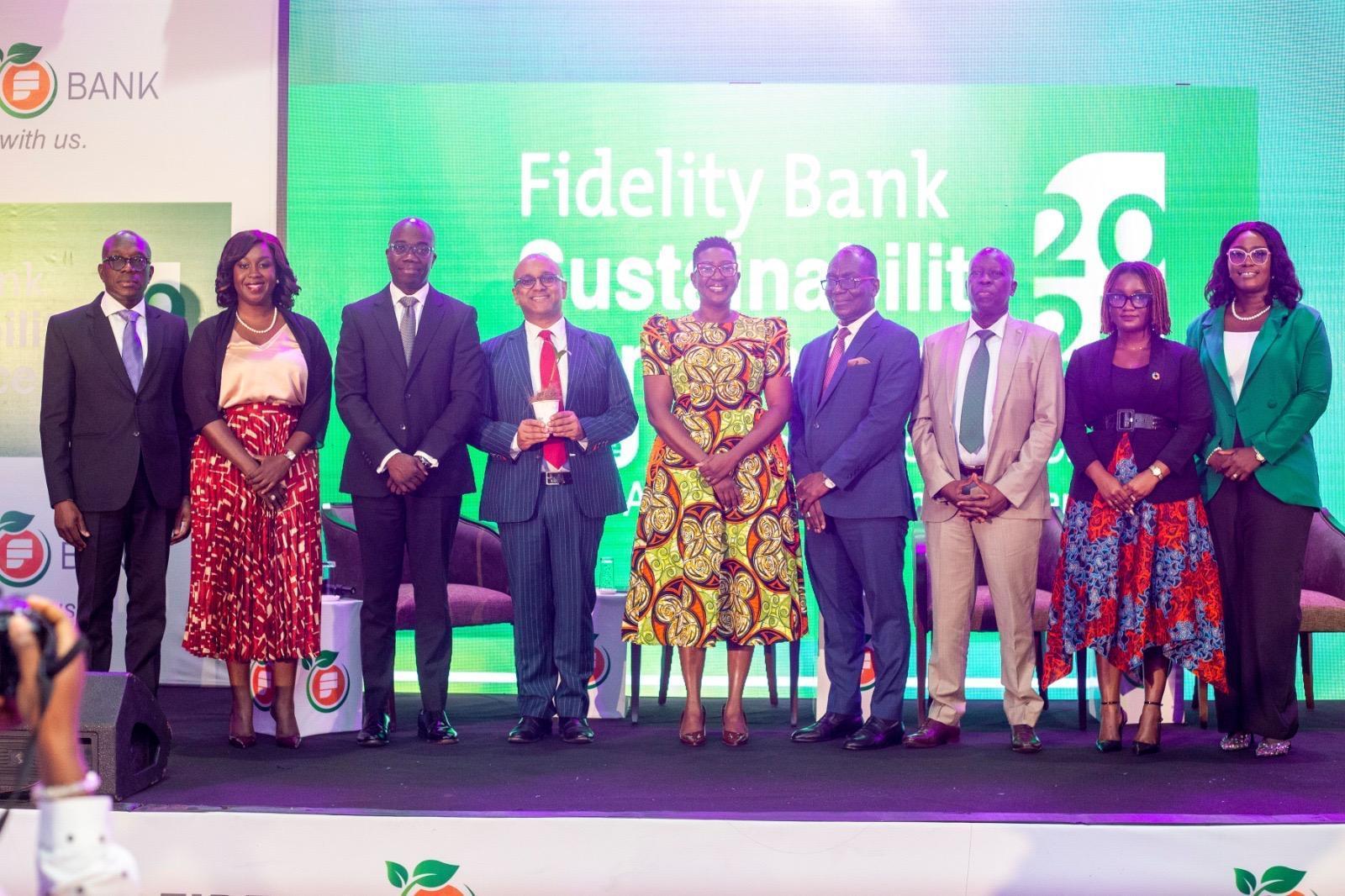Africa-Press – Ghana. On a busy Accra street, the quiet hum of an electric vehicle gliding past stands in sharp contrast to the fumes and noise of conventional engines. For many Ghanaians, such vehicles symbolise a cleaner future, offering a practical way to cut emissions while reducing long-term fuel costs. It was this sense of possibility that echoed at the third edition of the Fidelity Sustainability Conference.
Leaders across finance, policy, and industry gathered to chart how Ghana’s financial sector can align climate action with finance.
The message from the conference was clear: sustainability is no longer a side agenda for corporate social responsibility; it has become a business imperative at the heart of the financial system.
Over the past two decades, banks worldwide have shifted towards embedding sustainability into their strategies because every financing decision has ripple effects across value chains, livelihoods, and long-term growth.
The United Nations Resident Coordinator, Zia Choudhury, reminded participants in his keynote address that renewable energy consistently outperforms fossil fuels in risk-adjusted returns.
He called for what he described as a “new love affair” with sustainable finance that would shape the future of development and investment in Ghana and beyond.
Ghana’s Sustainable Banking Principles are designed to attract and deploy green capital while holding boards accountable for climate-aligned decision-making. Alignment with international standards such as IFRS S1 and S2, and the development of a Transition Finance Framework, were highlighted as pivotal to ensuring credible reporting and unlocking carbon market opportunities.
Fidelity Bank has also launched a Three-Year Climate Strategy Implementation Plan (2025–2027), co-designed with AfricInvest, Proparco, and IPC, to translate commitments into concrete action by integrating climate considerations into every layer of banking operations.
The conference underscored that no single institution can drive this agenda alone.
Partnerships with the United Nations, the Global Centre for Adaptation, Joy FM, the Institute of Sustainability Professionals Ghana, and The Palms by Eagles have created a broad coalition for climate action.
New collaborations with Innohub and GrowthAfrica will expand support for green entrepreneurs, while agencies such as the Bank of Ghana and the Ghana Investment Promotion Centre are helping to open access to multilateral climate funds and mainstream sustainability into education.
Innovation also took centre stage. Through the Fidelity Bank GreenTech Innovation Challenge, the bank has committed over GH₵1 million, catalysing more than GH₵13 million in revenue and benefitting over 900 people with technologies, such as solar dryers and organic fertilisers.
The Orange Inspire Creative Challenge celebrated solutions at the intersection of creativity and sustainability, with 25 innovators completing an intensive bootcamp, and prize winners and finalists receiving capital and mentorship to scale their solutions.
At the same time, financing instruments are being reshaped to respond directly to the real economy. Fidelity’s new electric vehicle financing product offers competitive loans to make EV ownership more accessible, reducing emissions while generating long-term savings.
Work is also underway to develop sustainable agriculture financing models and ESG-linked investment products that empower resilience and align investor portfolios with climate goals.
Effective stakeholder engagement and localisation strategies were identified as vital to translating these initiatives into real impact. Communication, panellists noted, must begin with tangible benefits, such as demonstrating how net-metering could reduce unemployment by encouraging small-scale renewable adoption.
Fast-tracking fintech development, leveraging agency banking, and amplifying testimonials from successful beneficiaries were among the strategies shared.
Fidelity Bank is positioning itself as a national champion in this regard, committed to building specialised green-finance skills and mobilising stakeholders behind a unified effort.
The conference, thus, closed with a call to action, urging the mobilisation of private sector capital with urgency and precision if Ghana is to meet its Nationally Determined Contributions under the Paris Agreement and secure a just transition.
The Managing Director of Fidelity Bank, Julian Opuni, reaffirmed the bank’s commitment to deploy capital where it changes lives, safeguards the planet, and delivers measurable impact.
The way forward includes establishing real-time dashboards to track impact metrics for GreenTech cohorts, EV financing, and ESG products. These are developing a national Transition Finance Framework to validate carbon markets; and convening sector-specific roundtables on agriculture, renewable energy, and gender-lens investing.
Other initiatives are deepening partnerships on data infrastructure for climate risk modelling; and conducting a mid-term review in the third quarter of 2025 to recalibrate the Three-Year Climate Strategy.
Fidelity Bank has, therefore, restated its dedication to driving these green initiatives, from supporting clean energy adoption and sustainable agriculture to expanding EV ownership and building resilience through innovation.
The goal is to ensure that every strand of its strategy delivers measurable environmental and social impact.
Just like the quiet hum of the electric vehicle on Accra’s roads, the shift to cleaner transport offers more than lower emissions and savings – it reduces air pollution, cutting the health risks associated with carbon-fuelled vehicles.
The conference made clear that every financing decision, including the support for EVs, can contribute to cleaner air, healthier lives, and a more climate-resilient future for Ghana.
Source: Ghana News Agency
For More News And Analysis About Ghana Follow Africa-Press







